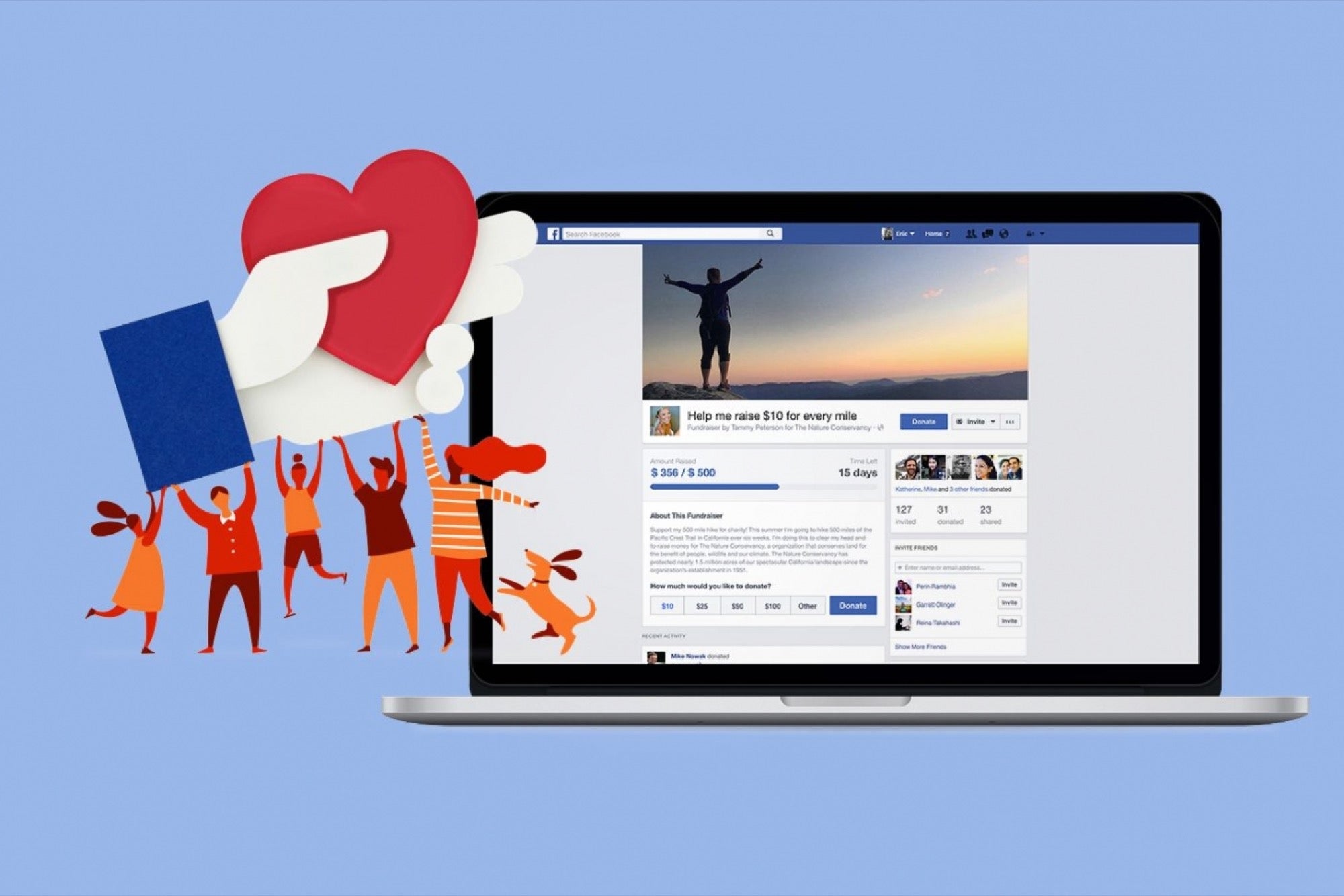Facebook Now Allows You to Create Fundraisers Facebook's strategy seems to become a societal platform with less emphasis on simply keeping up with friends and family.
Opinions expressed by Entrepreneur contributors are their own.

In an attempt to become a one-stop-shop for literally everything you do online, Facebook waged a war on GoFundMe, which claims to be "the #1 do-it-yourself fundraising website to raise money online." The former network already dabbled into fundraising in 2016, when it enabled users "to raise money for more than 750,000 nonprofits through fundraisers, and donate buttons in their live broadcasts and posts."
In the coming weeks, the feature will be rolled out to all verified Business Pages in the United States. Live broadcast viewers will be able to donate right as they're watching videos or afterwards, once those broadcasts are saved to the Page.
According to The Verge, the company is not keeping any part of the funds raised, yet "that doesn't mean a fundraiser's creator gets to keep all of the money raised." Think "payment processing fees, fundraiser vetting, and security and fraud protection."
Related: Before You Launch a Crowdfunding Campaign, Do These 6 Things
As fundraising feature is introduced, there are a few restrictions. Facebook allows individuals who reached 18 years of age to raise money for needs in six categories: education, medical, pet medical, crisis relief, personal emergencies (such as theft or an accident), funeral and loss. As the company tests and refines its latest offer, there will be a 24-hour review process. Official release also hinted at a possibility of adding more categories and omitting the review process later down the road.
The latter might be a questionable decision, as similar personal fundraiser platforms, such as mentioned GoFundMe, are often abused with less-than-critical needs.
At this point, it's interesting to see the dynamic that plays out in the latest moves by the social media giant. First, Facebook developed the ability to post and apply for jobs, next was the feature to contact your government officials and see election reminders, and now, you can raise funds for personal reasons. All without leaving Facebook.
Related: 7 Lessons They Don't Teach You In Crowdfunding School
It now seems that the company is moving towards a societal platform and away from a social network to keep up with friends and ex-classmates. In times of "minimum viable products" and "niche propositions," Facebook keeps adding more and more seemingly-unrelated features. Plus, Zuckerberg keeps insisting that his brain child is a media company, not a social network.
Is Facebook getting too "big," with its countless propositions, for its own good? Is this a move to truly differentiate Facebook from other networks that are built solely for the purposes of chatting and posting images? Is the whole list of abilities beyond posting selfies makes it truly "social?"
If you think about it, with the moods that currently sweep up the nation, being able to broadcast events live with your smartphone in an instant, contacting your government representatives, and being able to raise or donate money to causes is giving the rise to a completely new level of social journalism and activism. The level, we've never seen in human history. Now, anyone can become an overnight success, or lose popularity and public love with a single reckless post.
Related: Women Raise More Money With Crowdfunding, Research Shows
Mark Zuckerberg once said, that "By giving people the power to share, we're making the world more transparent." And he puts his own company, Facebook, on the forefront of such movement.









